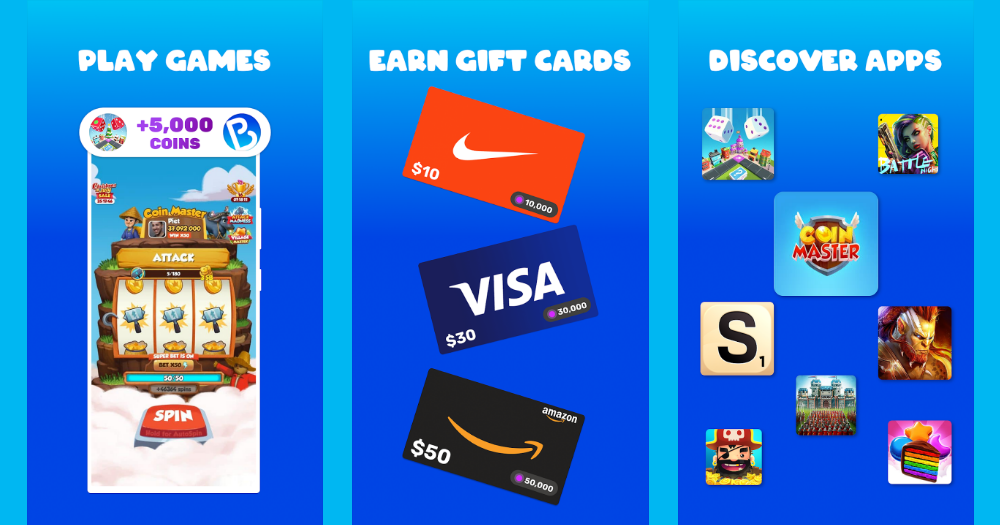How Play to Earn Games Are Changing the Way You Experience Online Entertainment
How Play to Earn Games Are Changing the Way You Experience Online Entertainment
Blog Article
Exactly How Play-to-Earn Games Are Transforming the Gaming Industry

Comprehending Play-to-Earn Mechanics
The play-to-earn design has arised as a cutting edge concept within the pc gaming market, fundamentally modifying the relationship in between players and the games they involve with. This design enables players to make substantial benefits, usually in the form of cryptocurrencies or non-fungible symbols (NFTs), via their in-game tasks. Unlike conventional gaming structures that commonly monetize through subscription charges or single purchases, play-to-earn video games incentivize gamer participation by straight connecting gameplay success to real-world value.
At the core of play-to-earn auto mechanics is the combination of blockchain technology, which guarantees transparency and provable ownership of in-game assets. Gamers can acquire, market, or trade these properties in decentralized marketplaces, equipping them with economic company formerly undetected in traditional video gaming settings. Each player's contribution to the video game environment-- be it via skillful play, critical trading, or neighborhood involvement-- enhances the overall gaming experience while giving them an opportunity to generate earnings.
As gamers invest time and resources, they not only deepen their interaction with the game however additionally promote a vibrant economic climate that shows their collective initiatives (play and earn rewards). This improvement of gameplay into a monetizable venture is improving both gamer motivation and game style
Financial Effect On Gamers

In addition, play-to-earn models democratize accessibility to economic advantages. Gamers from differing socio-economic histories can participate and potentially gain substantial revenue, linking spaces that exist in traditional task markets. This standard change promotes monetary independence, specifically in areas where job opportunity may be restricted.
Additionally, the introduction of virtual economies enables gamers to construct riches with tactical financial investments in in-game possessions, which can appreciate with time. This has led to the appearance of a brand-new course of players that approach play-to-earn as a significant income-generating activity, frequently leading to the reinvestment of earnings into the video gaming environment itself. Ultimately, the financial effect on players is profound, as they browse a landscape where leisure and income assemble.
The Role of Blockchain Innovation
What makes blockchain innovation a cornerstone of play-to-earn video games is its capacity to provide decentralization, security, and openness. By utilizing a dispersed ledger system, blockchain ensures that all deals within the video game are recorded in an immutable way, allowing gamers to verify ownership of in-game possessions without counting on a main authority. This openness promotes trust fund among gamers, as they can separately verify the shortage and provenance of electronic items, boosting their worth.
Additionally, blockchain modern technology encourages gamers via decentralization, enabling them to take part in peer-to-peer deals. Players are no much longer constrained to in-game economies controlled by developers; rather, they can trade, offer, or rent their possessions openly in open marketplaces. This change not only increases the overall liquidity of digital properties but likewise motivates even more significant gamer involvement, as individuals can straight gain from their effort and time spent in the game.
In addition, blockchain helps with the development of clever agreements, which automate numerous in-game processes, from incentives circulation to administration mechanisms. play and earn rewards. This advancement lowers the risk of scams and makes certain fair play, additional strengthening blockchain's essential role in the advancement of play-to-earn video gaming
Objections and challenges
Regularly, play-to-earn games deal with considerable obstacles and criticisms that can impede their growth and approval within the broader pc gaming community. One main problem is the possibility for a speculative bubble, where the worth of see here now in-game assets can change drastically, causing monetary losses for gamers. This volatility weakens the stability that standard pc gaming settings normally provide.
In addition, the assimilation of blockchain innovation usually raises questions about environmental sustainability. The energy usage connected with certain blockchain pop over here networks has actually stimulated arguments concerning the environmental effect of these games. Movie critics suggest that the carbon footprint produced by play-to-earn platforms could prevent eco-conscious players.
Additionally, there are problems regarding accessibility and inclusivity. Many play-to-earn games require gamers to invest significant upfront resources to get essential possessions, developing barriers for those with limited funds. This design can unintentionally create a divide between wealthier players and those that can not afford to take part.
Future Patterns in Video Gaming
As the gaming sector remains to progress, several future fads are emerging that assurance to improve the landscape of play-to-earn video games and past. One considerable trend is the enhancing combination of blockchain innovation, which improves openness and safety and security in purchases. This will likely cause higher trust amongst players, urging wider adoption of play-to-earn designs.
In addition, the increase of non-fungible tokens (NFTs) is established to revolutionize electronic possession, permitting players to really possess in-game assets. This change will certainly not just encourage gamers yet also produce brand-new financial opportunities within the online ecological community. Furthermore, the convergence of video gaming with other sectors, such as social media sites and decentralized finance (DeFi), is anticipated to promote ingenious gameplay auto mechanics and monetization methods.
In addition, improvements in fabricated intelligence and machine learning will certainly make it possible for a lot more individualized pc gaming experiences, providing to specific gamer choices and enhancing engagement. Lastly, the growing focus on community-driven advancement will likely affect game style, as players significantly join forming their gaming settings. Jointly, these trends show a transformative future for the gaming market, where play-to-earn versions will play a main role in redefining gamer communication and value development.
Verdict
In final thought, play-to-earn games represent a significant shift in the pc gaming market, cultivating economic possibilities with ingenious technicians that leverage blockchain technology. This model not only equalizes access to financial advantages for gamers from go now numerous socio-economic histories but likewise urges area involvement and empowerment. Despite facing difficulties and criticisms, the possibility for future innovations suggests that play-to-earn video games will remain to shape the video gaming landscape, offering brand-new methods for wealth creation and gamer involvement.
The emergence of play-to-earn games represents a significant shift in the pc gaming sector, reshaping the partnership between players and the digital economic climate (play and earn rewards).The play-to-earn model has emerged as a revolutionary principle within the pc gaming sector, essentially changing the partnership in between gamers and the video games they involve with. Unlike traditional pc gaming frameworks that usually monetize via registration costs or one-time purchases, play-to-earn video games incentivize gamer participation by directly connecting gameplay accomplishments to real-world value
These ingenious video gaming platforms encourage gamers to generate real-world revenue with their in-game activities, thus changing the conventional idea of gaming from a plain pastime right into a sensible economic possibility. Despite encountering difficulties and objections, the potential for future developments recommends that play-to-earn games will continue to shape the gaming landscape, supplying new methods for wide range development and gamer participation.
Report this page